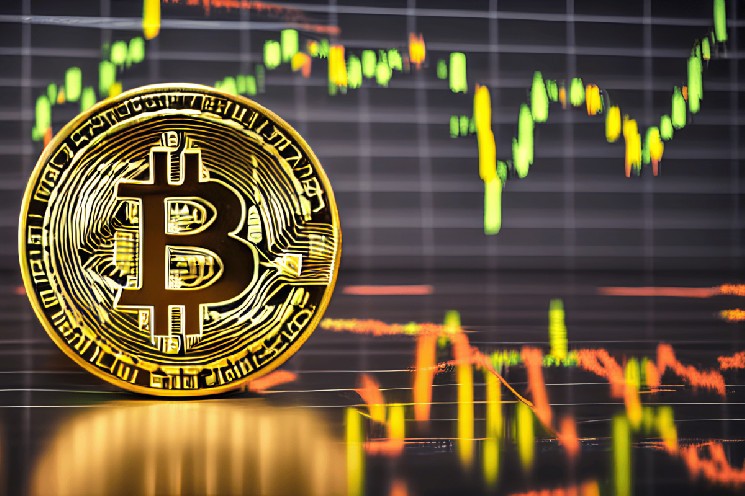Why Islamic finance is thriving despite global market storms

The Covid-19 pandemic has ravaged the global economy, with countries fighting record inflation levels with soaring interest rates across the board. For example, inflation in the United States recently went as high as 9.1%: a figure that has not been seen in over 40 years. Similar numbers are being witnessed globally in the United Kingdom, France, Germany and others.
Despite the adverse developments in the western world, the Islamic finance industry has not only weathered the storm exceptionally well. Despite the global recession, Islamic finance continues to expand at an impressive rate, registering double-digit growth of 10.6% in the height of the pandemic.
That said, even though the gross domestic product (GDP) growth of certain Islamic nations countries is expected to be lower than in the past, studies claim that the sector will continue to grow at a steady rate of 10 to 12% over the next two years.
So what are the reasons for this growth, and how is the Islamic finance sector projected to develop in 2023?
Why does Islamic finance continue to grow?
As mentioned earlier, even though the value of Islamic finance assets stagnated throughout 2020, it is estimated that they will continue growing at a compound annual growth rate (CAGR) of 5% over the next five-year stretch, reaching a cumulative valuation of US$3.5 trillion by 2024.
The reason for the continued growth is that the principles of Islamic finance are becoming increasingly attractive to people worldwide. For example, Islamic finance prohibits the charging of interest and instead focuses on equitable profit and loss-sharing arrangements, promoting communal harmony and brotherhood.
Additionally, Islamic finance continues to benefit from increased and high-quality regulation as well as the rising popularity of socially responsible investments, or ESG, among other key aspects, including:
- Commitment to transparency: Islamic finance is based on the principles of fairness, transparency and ethical conduct.
- Protection of economic stability: As Islamic finance prohibits speculation and encourages investments in real assets, it can help spur economic stability and reduce the risk of financial crises.
- Encouragement of social responsibility: Islamic finance strongly emphasizes social responsibility and charitable giving. This way, it helps promote the development of underprivileged communities and support social welfare programs.
- Market growth: The Islamic finance industry is expected to grow in the coming years, presenting an opportunity for investors and businesses to tap into this market and benefit from its expansion.
Lastly, the Islamic finance sector is valued at US$2.3 trillion, serving the needs of nearly a quarter of the world’s population. Experts believe that the Middle East, Africa and South Asia (MEASA) region can help expand the industry’s dominance further, especially as a growing forum of investors and householders in these regions continue to turn to Sharia-based finance tools.
For example, the total number of Sukuk issuances — Islamic bonds designed to produce returns for investors while staying in line with Islamic law — has witnessed steady growth recently. To elaborate, data shows that Sukuk offerings will grow at a CAGR of nearly 7% over the next few years, eventually climbing to a cumulative valuation of US$257 billion by 2026, which is more than 30% higher from its 2021 levels of about US$196 billion.
Untapped opportunities in Islamic countries
While Sukuk finance will grow in the near-to-mid term, ample statistical data suggests that the Takaful market will experience a lot of growth, expanding at a base rate of 5%-10%. In essence, Takaful is an Islamic insurance scheme that requires participants to put their money in a consolidated pool to obtain certain guarantees against loss or damage.
Not only that, it is estimated that the Islamic fund industry will experience an increasing amount of consumer interest, especially as investors worldwide continue to understand its benefits when it comes to delivering higher yields compared to traditional financial instruments.
That said, Islamic finance still needs to unlock untapped opportunities such as halal blockchains and sharia-compliant cryptocurrencies, to increase its scope of utilization and adoption. Cryptocurrency and blockchain technology has the potential to help the Islamic finance industry in a number of ways, such as:
- Increased accountability: Blockchain technology allows the creation of transparent and immutable digital ledgers, helping increase the transparency and accountability of financial transactions.
- Improved efficiency: Blockchain and cryptocurrency technology can help streamline financial transactions and reduce the need for intermediaries, thus improving the overall working efficiency of Sharia-based finance systems.
- Enhanced security: These technologies offer enhanced security for financial transactions, helping reduce the risk of fraud and other financial crimes, protecting assets, and preserving trust.
- Greater accessibility: They can make financial services more accessible to a wider range of users, including those who may not have access to traditional financial institutions, thus promoting financial inclusion and supporting the growth of Islamic finance.
- Opportunities for innovation: Blockchain and cryptocurrency technology are still relatively new and are rapidly evolving. It presents opportunities for innovators in the Islamic finance industry to develop new products and services that take advantage of these technologies.
What lies ahead for the Islamic finance sector?
As the world continues to move in a more decentralized direction, it will be interesting to see how the Islamic world forges ahead with its plan of creating a unified legal, financial and regulatory framework. In this regard, experts believe that blockchain can help since it stands to not only uphold the values and principles of Sharia law but also present a new paradigm of digital financing opportunities for the global Muslim community.






 Bitcoin
Bitcoin  Ethereum
Ethereum  Tether
Tether  USDC
USDC  TRON
TRON  Dogecoin
Dogecoin  Cardano
Cardano  Bitcoin Cash
Bitcoin Cash  Chainlink
Chainlink  Monero
Monero  LEO Token
LEO Token  Zcash
Zcash  Stellar
Stellar  Litecoin
Litecoin  Hedera
Hedera  Dai
Dai  Cronos
Cronos  Tether Gold
Tether Gold  OKB
OKB  Ethereum Classic
Ethereum Classic  KuCoin
KuCoin  Gate
Gate  Algorand
Algorand  Cosmos Hub
Cosmos Hub  VeChain
VeChain  TrueUSD
TrueUSD  Dash
Dash  Tezos
Tezos  Stacks
Stacks  IOTA
IOTA  Basic Attention
Basic Attention  Theta Network
Theta Network  Decred
Decred  NEO
NEO  Synthetix
Synthetix  Qtum
Qtum  Ravencoin
Ravencoin  DigiByte
DigiByte  0x Protocol
0x Protocol  Nano
Nano  Zilliqa
Zilliqa  Holo
Holo  Siacoin
Siacoin  Numeraire
Numeraire  Waves
Waves  Status
Status  BUSD
BUSD  Enjin Coin
Enjin Coin  Pax Dollar
Pax Dollar  Ontology
Ontology  Hive
Hive  Lisk
Lisk  Steem
Steem  Huobi
Huobi  NEM
NEM  OMG Network
OMG Network  Bitcoin Gold
Bitcoin Gold  Augur
Augur  HUSD
HUSD  Ren
Ren